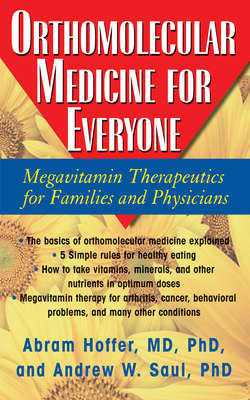Читать книгу Orthomolecular Medicine for Everyone - Abram Hoffer M.D. Ph.D. - Страница 28
На сайте Литреса книга снята с продажи.
Stomach Acid and Peptic Ulcer
ОглавлениеUsually the stomach is stimulated to secrete gastric juices containing hydrochloric acid when food is consumed. For perhaps 99 percent or more of our existence on earth, food contained the natural admixture of protein plus the other constituents. When the food reached the stomach, the acid quickly was bound by the protein, which it helped digest. Therefore, there was no surplus amount of acid lying around in the stomach, and the inner lining of the stomach—the mucosa—remained intact. The protein buffered the acid against the stomach wall.
However, in today’s nutrition, very often food is consumed that contains less protein than was originally present or it may contain no protein at all. Refined foods, such as flour and polished rice, have lost perhaps 10 percent of their protein, but the refined sugars have lost it all. When one drinks a bottle of soda, one places in the stomach what might appear to be food to the stomach because it is attractive in appearance and tastes sweet. There will be the same increased excretion of acid, but there will be no protein present and the soda will remain free in the stomach. The only buffering protein will then be the mucosa itself and the protein exudates (materials released from blood vessels) on its surface.
The causes of peptic ulcer are more complex. It is now considered a chronic bacterial disease due to the invasion by Helicobacter pylori and, in most cases, does respond well to specific antibiotic treatment. Untreated, it may later advance to cancer of the stomach. Peptic ulcer was once considered another of the classic psychosomatic diseases. Thus, another of the main psychosomatic diseases turns out to be an aspect of the sugar metabolic syndrome. Nutritious food turns out to be much more important than thousands of hours of skillful psychoanalysis.
Other conditions that may be manifestations of the sugar metabolic syndrome include coronary disease, primary E. coli infection of the bowel, and gallstones.
